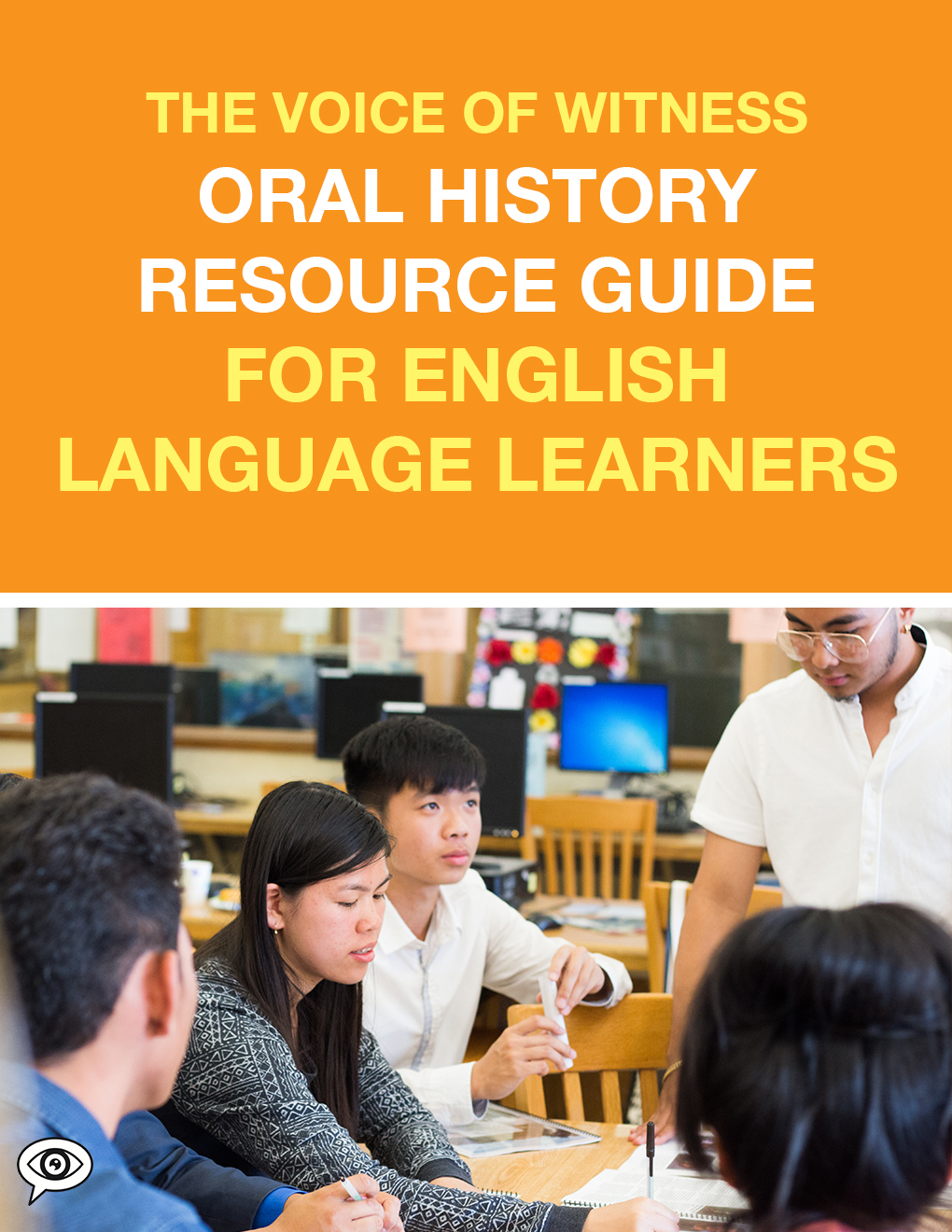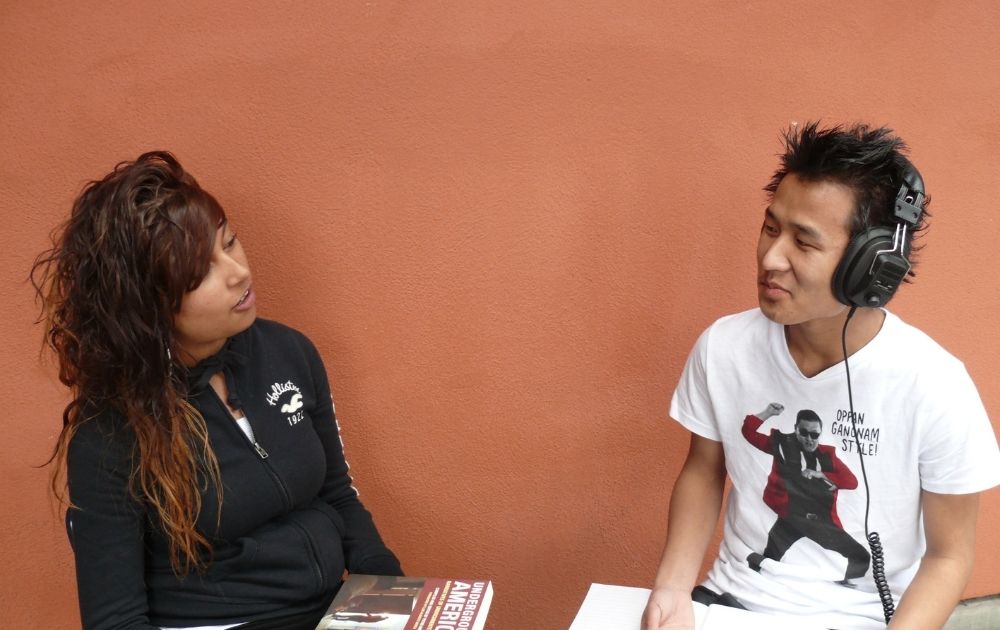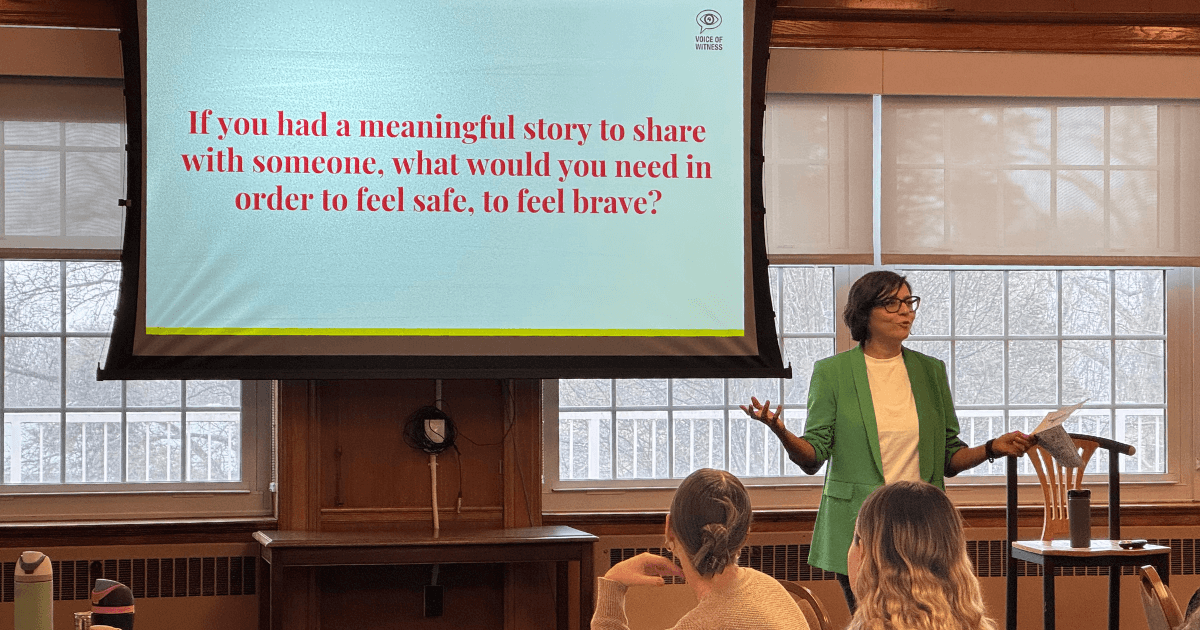
Voice of Witness is committed to developing curriculum through our education program that directly supports students in migrant and English Language Learner (ELL) communities.
Today, you can download our new Oral History Resource Guide for English Language Learners.
Addressing the Need
The current administration’s rhetoric and policies are threatening to break apart immigrant families and impede the stability of young students’ home lives. More than ever, classrooms need to be a refuge from confusion and marginalization, and a place where students can thrive and grow into engaged and empowered members of their schools and communities.
One of the most significant challenges newcomers face when they arrive in the U.S. is building a life in a country where everyone speaks an unfamiliar language. For immigrants, language barriers affect the jobs they work, the friends they make, and even the quality of healthcare they recieve. Unsurprisingly, language also plays a significant role in young people’s learning in school and beyond the classroom.
There are more than five million English Language Learners in U.S. public schools, and they are the fastest growing segment of the U.S. population. The students in U.S. public schools learning English encompass many different cultural identities and circumstances, including U.S. citizens, newcomers, refugees, migrant workers, unaccompanied minors, and children of immigrant families. They are in classrooms at all education levels, from grade school, to community colleges and universities, and even adult education classes.
Speaking a different language in school than at home is not just a race to catch up in grammar and syntax. Language barriers often carry with them many cultural challenges for students in the classroom. ELL teachers are tasked with catering to the educational needs of a large diversity of students, while fostering an environment of acceptance and inclusion.
Despite the growing number of ELLs in U.S. schools, decreased public school funding, increased classroom sizes, and budget cuts have made it difficult for teachers to address the cultural stradling that accompanies literacy and communication challenges. In 2016, 32 states reported an insufficient number of teachers for ELL students, and as many as half a million students lack special instruction to learn English.
Our Resource Guide

We’ve been growing relationships with advocates and educators, and gathering input from migrant education and ELL specialists to create a scalable oral history education toolkit specially adapted for teachers working with language learners. Through this curricular expansion, we can better address the unique needs of ELL and migrant students at a variety of language levels, while providing culturally relevant and responsive content to marginalized communities.
At Voice of Witness, we believe oral history is an incredibly useful tool for language learning, as it incorporates literacy, critical thinking, and a participatory vision of history. Through oral history, students can connect their own cultural knowledge with their academic journey, and have more opportunities for visibility and voice–not only by sharing their own stories, but also by amplifying voices from their families and communities. They can embrace the educational value of their own backgrounds and experiences, while building their speaking, listening, reading and writing skills. Oral history empowers students by making their identity part of the curriculum. Students open up, share their stories, and create a more inclusive, empathetic environment in the classroom.
By supporting these young students and centering voices from their communities, we can build agency and self-esteem among students learning English, equip them with tools for improving academic outcomes, and help them grow and succeed beyond the classroom.
Support from VOW and our oral history project helped my ELL students get to know each other, improved their listening and speaking skills, and gave them a goal of public presentation. They even improved their writing and editing skills with the book we created.
EVAN DE GENNARO, Laney College, Oakland




